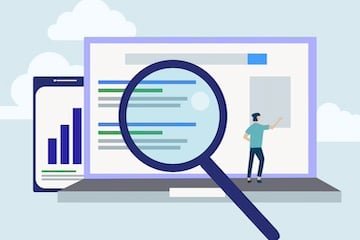Google announced its site reputation abuse policy in March 2024 as part of a core update to its organic search algorithm.
Google defined site reputation abuse as “when third-party pages are published with little or no first-party [editorial] oversight or involvement, where the purpose is to manipulate Search rankings by taking advantage of the first-party site’s ranking signals.”
News sites that publish recommendations from third parties are example abusers, per Google. To date, they reportedly include CNN Underscored, Forbes Advisor, and WSJ Buy Side.
Google has since expanded the policy to include any third-party content with or without oversight.
Manual Penalty
Google enforces compliance with its reputation abuse guidelines via manual actions. If it considers a site an abuser, Google will notify the verified owner of a manual penalty in Search Console.
The penalty doesn’t affect the entire site, only the section that hosts the third-party content. To date, only sites that receive the manual action notice are penalized.
But in an update last month, Google stated it could algorithmically detect “if a section of a site is independent or starkly different from the main content of the site.” When the detection occurs, Google says it will treat that section as a separate site and not apply the main site’s authority.
Thus expect Google to monitor and enforce site reputation abuse algorithmically.
Recovery
There’s no recovery from this penalty. If your site hosts third-party content in the manner Google defines, there’s no way to fix it, even with editors or reviewers.
Moreover, moving the penalized section to another subdomain or subdirectory will make matters worse, as Google explains in the policy circumvention section of its “Spam policies,” stating:
Circumvention includes but is not limited to:
- Using existing or creating new subdomains, subdirectories, or sites with the intention of continuing to violate our policies.
- Using other methods intended to continue distributing content or engaging in a behavior that aims to violate our policies.
Google adds:
If a site continues to engage in actions intended to bypass our spam policies or content policies for Google Search, we may take appropriate action, which may include restricting or removing eligibility for some of our search features (for example, Top Stories, Discover) and taking broader action in Google Search (for example, removing more sections of a site from Search results).
The best response for penalized sites is to develop traffic-generating content that doesn’t come automatically from third parties.
How to Prepare
Google’s site reputation abuse penalty thus far applies only to the offending sections, not sitewide. But I foresee it becoming sitewide if the policy becomes part of the core algorithm, such as what occurred with the helpful content updates.
So noindex your third-party content now. Recovery from Google’s core algorithm updates can take months and years.




